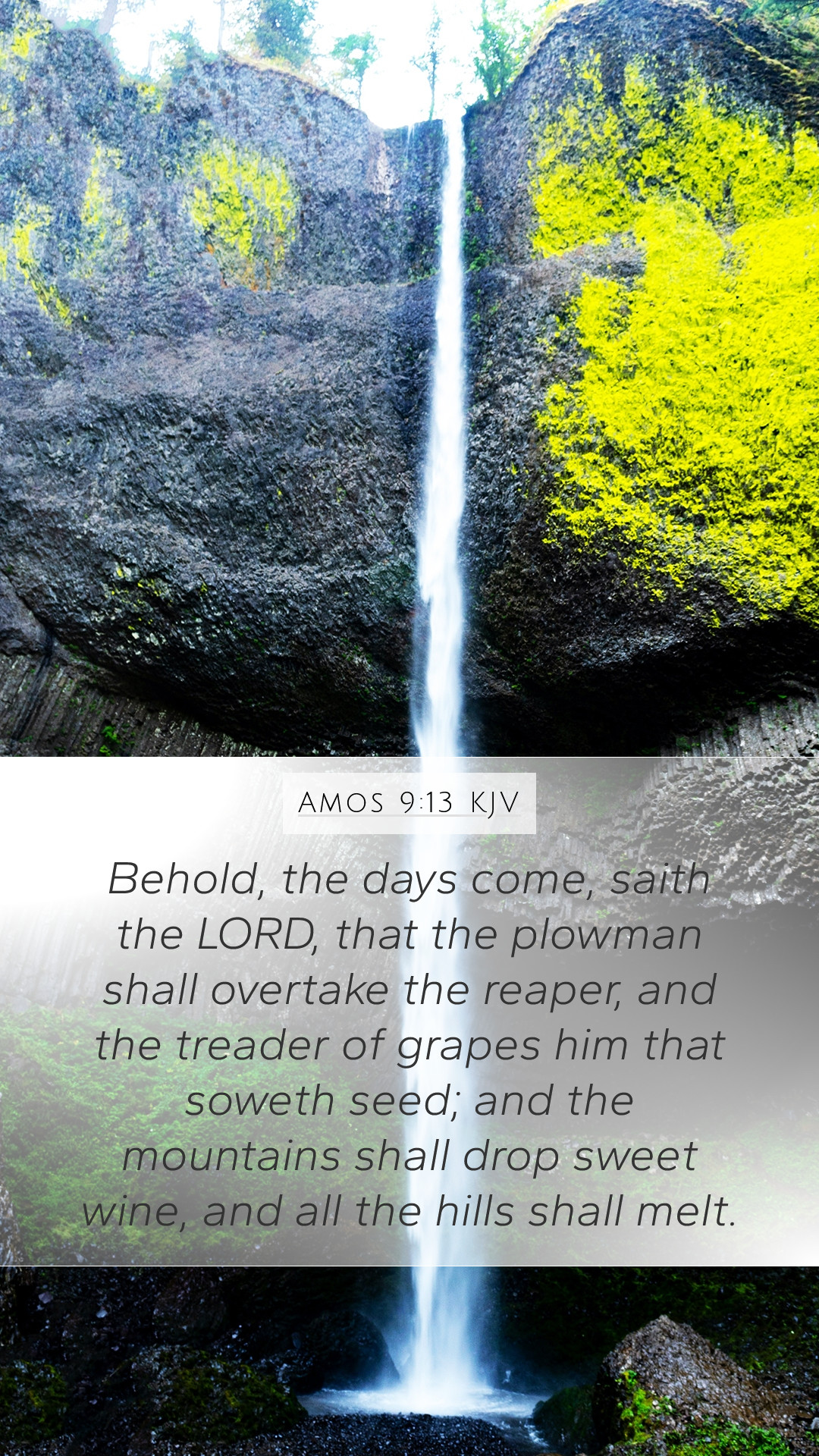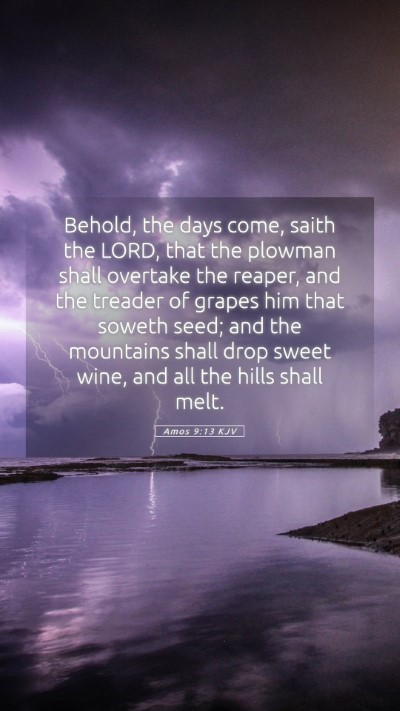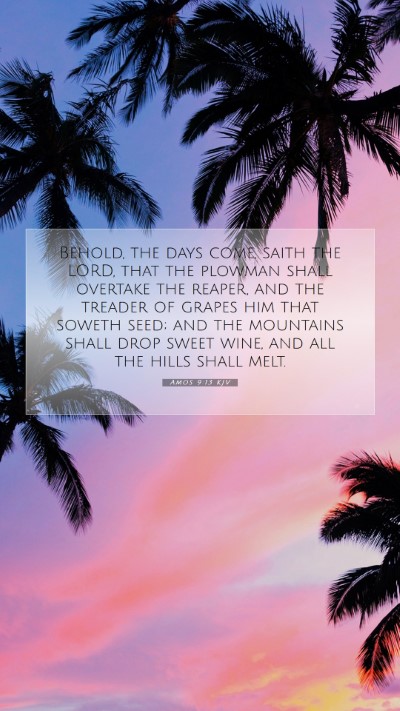Old Testament
Genesis Exodus Leviticus Numbers Deuteronomy Joshua Judges Ruth 1 Samuel 2 Samuel 1 Kings 2 Kings 1 Chronicles 2 Chronicles Ezra Nehemiah Esther Job Psalms Proverbs Ecclesiastes Song of Solomon Isaiah Jeremiah Lamentations Ezekiel Daniel Hosea Joel Amos Obadiah Jonah Micah Nahum Habakkuk Zephaniah Haggai Zechariah MalachiAmos 9:13 Meaning
What is the meaning of Amos 9:13?
Behold, the days come, saith the LORD, that the plowman shall overtake the reaper, and the treader of grapes him that soweth seed; and the mountains shall drop sweet wine, and all the hills shall melt.
Amos 9:13 Bible Verse Meaning
Understanding Amos 9:13
Amos 9:13 states, "Behold, the days come, saith the Lord, that the plowman shall overtake the reaper, and the treader of grapes him that soweth seed; and the mountains shall drop sweet wine, and all the hills shall melt." This verse is rich with meaning and has been interpreted in various ways by biblical scholars and commentators.
Bible Verse Meanings
In exploring the meaning of Bible verses, Amos 9:13 can be seen as a prophetic declaration of abundant blessings. The imagery used reflects a significant time when agricultural harvests will be so prolific that the processes of sowing and reaping will occur simultaneously.
Bible Verse Interpretations
Matthew Henry emphasizes the transformational power of God's blessings, suggesting that this verse points towards a future characterized by God's favor. The restoration of Israel is highlighted, signifying not just physical abundance but spiritual renewal.
Albert Barnes elaborates that the "plowman" and "reaper" symbolize a divine overabundance in the land, where the hardships of the past will be replaced with prosperity and joy. This might also indicate an accelerated return to God's covenant relationship with His people.
Adam Clarke interprets the metaphors of agriculture as a symbolic representation of the Kingdom of God coming in fullness, where those who serve God will experience overflow and blessing as they engage in the work of the harvest. This reflects the core theme of God’s redemptive work in history.
Scripture Analysis
This verse serves as an optimistic conclusion to the prophet Amos’ messages of judgment. It depicts a time of restoration after devastation, aligning with biblical themes of renewal found throughout Scripture.
Significance in Context
- The preceding chapters discuss the impending doom and judgment on Israel.
- This specific verse contrasts that judgment with the hope of restoration, illustrating God’s mercy.
- It reflects a deeply ingrained biblical theme – the cycle of judgment and restoration that offers profound Bible study insights.
Application of the Verse
For Bible study groups and individuals engaging in online Bible study, Amos 9:13 exemplifies a powerful reminder of God's capacity to bring forth blessings even after severe trials. It encourages believers to remain hopeful in challenging times, trusting in God's promises of restoration.
This verse stands as an assurance that God’s goodness can overtake brokenness, making it pertinent for those conducting Bible study lessons that focus on hope and redemption.
Related Cross References
- Joel 3:18 - Discusses the abundance of wine and nourishment.
- Isaiah 55:12-13 - Speaks of joy and peace in creation as a reflection of God’s transformation.
- Micah 4:4 - Portrays a picture of peace and security in the land.
Conclusion
Amos 9:13 is a profound verse encouraging believers to anticipate God’s blessings in their lives. It calls to mind the essential understanding of Scripture regarding God’s character as one that promises restoration and abundance. As we delve into such Bible verse explanations, we find layers of theology resonating with God’s ultimate plan for his creation.


